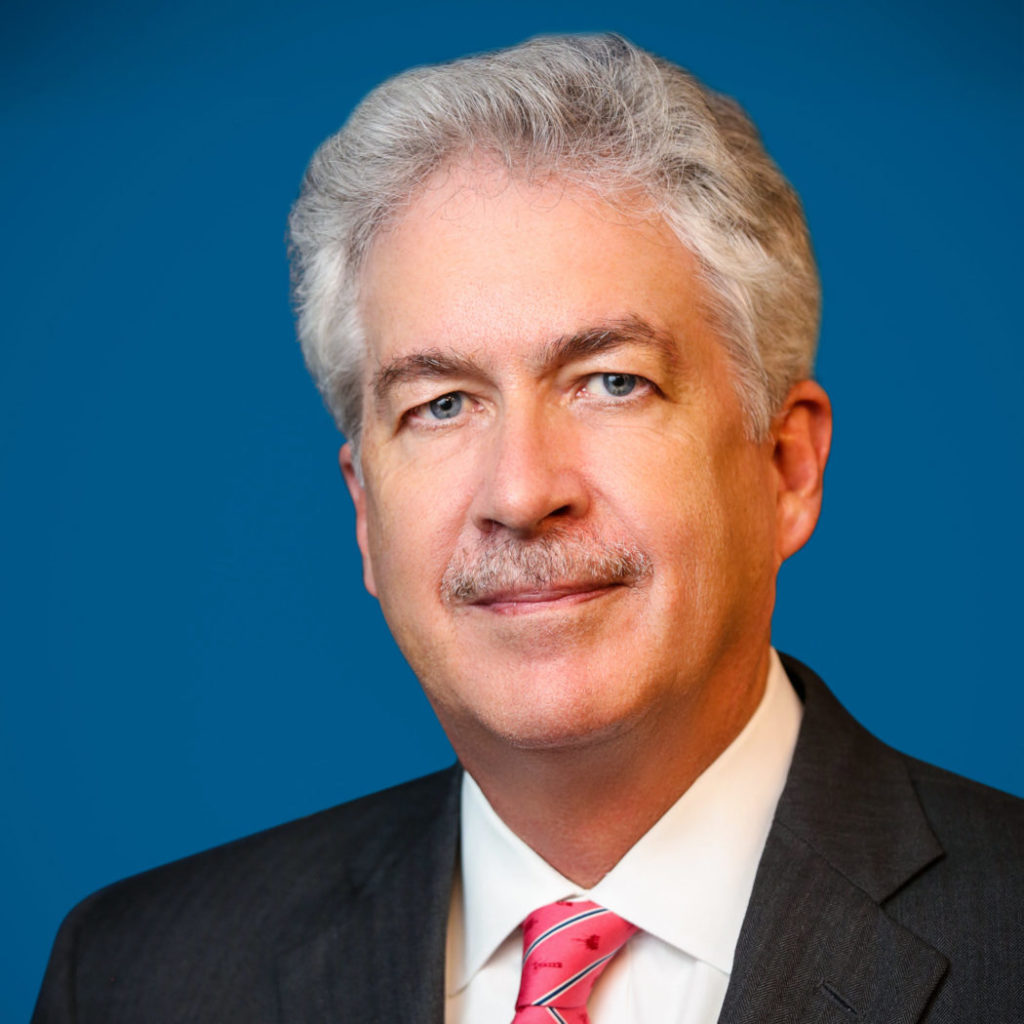


Serves as the head of the Central Intelligence Agency, which is part of the United States Intelligence Community. The Director reports to the Director of National Intelligence (DNI).
William J. Burns is the Director of the Central Intelligence Agency.
Ambassador Bill Burns was president of the Carnegie Endowment for International Peace, the oldest international affairs think tank in the United States. Ambassador Burns retired from the U.S. Foreign Service in 2014 after a thirty-three-year diplomatic career. He served as the Deputy Secretary of State from 2011-2014 and as the Under Secretary for Political Affairs from 2008 to 2011.
Past statements on development, diplomacy, and U.S. global leadership:
On U.S. global leadership: In a 2019 Foreign Affairs article, Burns wrote, “The country has a window of opportunity to lock in its role as the world’s pivotal power, the one best placed to shape a changing international landscape before others shape it first. If the United States is to seize that opportunity and safeguard its interests and values, it will have to rebuild American diplomacy and make it the tool of first resort, backed up by economic and military leverage and the power of example.” (source)
On Diplomacy: In a 2019 Foreign Affairs article, Burns wrote, “What I learned time and again throughout my long career is that diplomacy is one of the United States’ biggest assets and best-kept secrets… its rebirth is crucial to a new strategy for a new century—one that is full of great peril and even greater promise for America.” (source)
On Foreign Policy for the Middle Class: Burns writes, “First and foremost, American foreign policy must support domestic renewal. Smart foreign policy begins at home, with a strong democracy, society, and economy. But it has to end there too—with more and better jobs, greater security, a better environment, and a more inclusive, just, and resilient society.” (source)
On the State Department: In a 2019 Foreign Affairs article, Burns wrote, “No matter what reforms the State Department undertakes, renewing American diplomacy will be impossible without a new domestic compact—a broadly shared sense of the United States’ purpose in the world and of the relationship between leadership abroad and middle-class interests at home.” (source)
On COVID-19: Writing for the Atlantic in April 2020, Burns cautioned: “The post-pandemic world will pose a massive test for American statecraft, the biggest since the end of the Cold War.” (source)
On Alliances: Burns shares that a “second major priority for a reinvented foreign policy involves grand global challenges—climate change, global health insecurity, the proliferation of weapons of mass destruction, and the revolution in technology. All of those problems directly affect the health, security, and prosperity of Americans. None of them can be solved by the United States on its own. All will require international cooperation, despite intensifying strategic rivalry.” (source)
On Climate Change: Writing for the Atlantic in April 2020, Burns warned that “International institutions will teeter, split apart by major-power rivalry and starved for resources, undermining prospects for a coordinated response to other looming global challenges—none more existential than climate change.” (source)
On Authoritarianism: During 2019 testimony to the Senate Foreign Relations Committee, Burns challenged: “At a time when authoritarians feel the wind in their sails, the United States cannot afford to blindly and willfully indulge autocratic impulses. This body has already strongly condemned acts like the killing of Jamal Khashoggi and called for curtailing the overreach that has bred such horrendous conditions in Yemen; we must also do more to make sure that these condemnations are followed by tangible actions.” (source)
On China: During a May 2019 interview with the Foreign Service Journal, Burns stated, “Managing competition with China will be the central task of American statecraft for decades to come. That’s what navigating great power rivalry is all about—maneuvering in the gray area between peace and war; exhibiting a healthy grasp of the limits of the possible; building leverage; exploring common ground where we can find it; and pushing back firmly and persistently where we can’t.” (source)
On Russia: In a 2019 interview at the Harvard Kennedy School, Burns wagered: “it’s important not to give up on Russia beyond Putin, because I do think there’s a middle class in Russia that’s restive today over economic stagnation and a sense of absence of possibilities. It’s not a revolutionary middle class, but it’s a restive middle class. And I also think that Russians, as you look at over the next decade, are going to chafe at being China’s junior partner, just as they chafed at being the junior partner of the United States after the Cold War. So there’s space for artful American diplomacy as you look ahead.” (source)